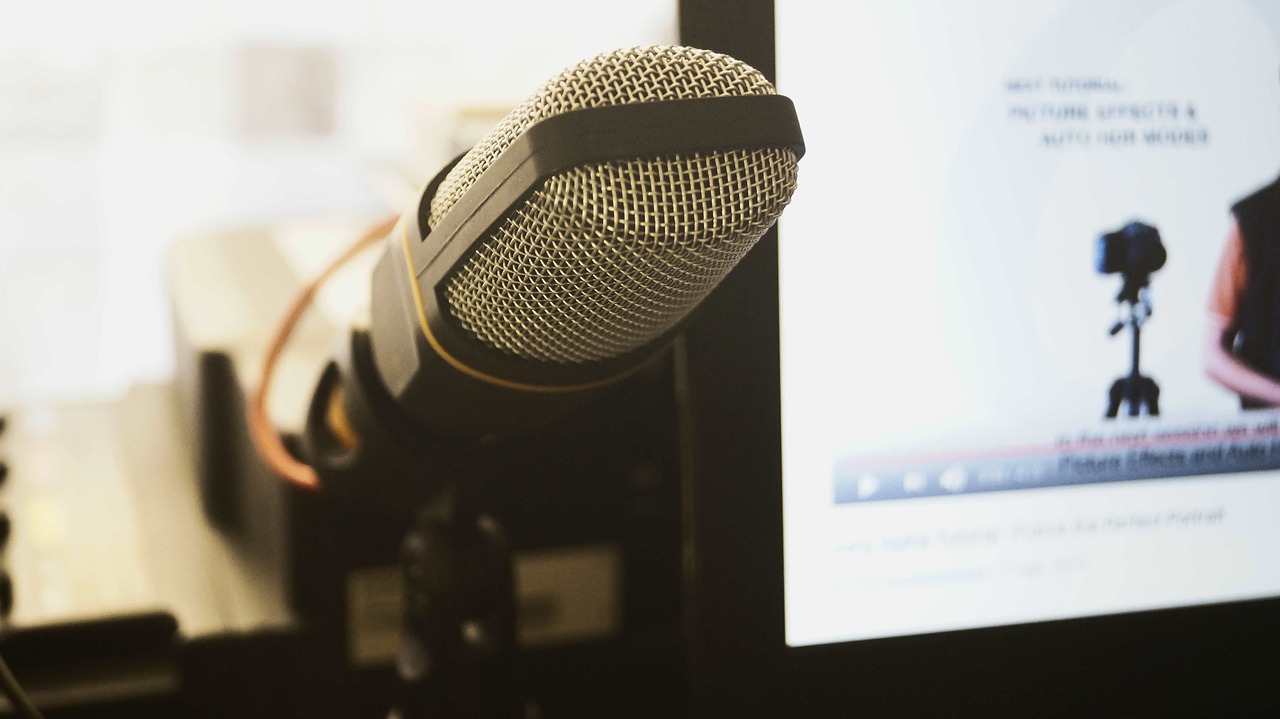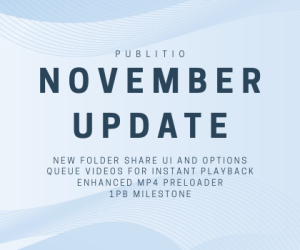Starting something you have never done before and have no experience in is difficult for everyone and we all have a fear of failure. Unfortunately, we cannot really give you the courage, inspiration, or audience to start a podcast, but in order to make it as easy as possible, here is a guide on how to start with a podcast, including the most important steps and tips.
What is a Podcast?
For those who are not quite sure what a podcast is, it is an audio or audio-visual digital program spoken on a certain topic by a host or multiple hosts. Most of the podcasts have one main topic and many subtopics, depending on the episode. People often listen to podcasts when they are driving, waiting in line, or waiting for someone because they are quite interesting and do not require you to do anything, just relax and listen.
How does it work?
The podcast episodes are published on a certain platform and the subscribers of the podcast can download the episodes and listen to them whenever they want. Since most of the podcasts are free, podcasters earn money by ads, sponsorships, audience donations, partnerships, selling their own merchandise, etc. Have in mind that the road between beginning to make podcasts and earning money is long and hard and many people give up too soon. Be patient and do not give up! The money and audience do not suddenly appear once you upload your first episode.

Why are podcasts so popular?
One of the reasons podcasts became very popular was the ability to download them and listen to them any time. People prefer listening to shows when they feel like it, rather than when it is streaming live on radio or tv. Considering that most podcasts are audio-only, they are easier to produce and they require less attention to listen to them, so they are often listened to in the car, in public transport, waiting for lines, lunch breaks, etc. The growth of its popularity encouraged many people to consider making podcasts. Since the choice of topics is endless, listeners can always find something they are into these days and enjoy new episodes each week, fortnight, month, or a new season of their favorite podcast.
Types of Podcasts
Types of podcasts refer to the people hosting or guesting in them. The monologue is a solo show which you are the host of. You depend on yourself and none other people are included in your podcast. Podcasting with a co-host is often more interesting, especially if you are co-hosting with someone you are really close with. The two of you have the dialog and discuss certain topics together. The interview includes a host and guests, which are usually experts in the topic of that episode, so they can give you some valuable information and tips. There are other types such as documentary, repurposed content, drama, etc.
Important Steps when Starting a Podcast:
Choose the topic and title
Both title and topic refer to the whole podcast, as well as the individual episodes. For example, the podcast might be called “Movies” and episodes individually might be called “Comedies”, “Romantic movies”, “Movie theaters” etc.
You should take your time to think about the topic because that is the most important thing about your podcast and the reason people will listen to you. You should choose a topic that you are well familiar with and something you can talk about for many episodes. In order to have fun making a podcast, choose the topic you are passionate about, have a lot of information and knowledge of, and something you actually enjoy talking about.
You choose the title according to the topic. It should not be too complicated or too specific, but unique, catchy, easy to remember and search. You want to choose a name that will give you room to talk about a lot of different things that refer to the main topic. It is not recommended to use your name as the title of your podcast if you do not have an audience yet, but combining the main title with your name would be a better idea. The previous title example we gave “Movies” is not very inspiring and unique, so you have to spice it up a little! Be creative!
Plan the episodes: length and frequency
Both length and frequency depend on your content. The episode should be as long as you have something relevant to the topic to talk about. The most important thing in podcasts is the quality of your content, not the quantity. Take your time to prepare, script, film, and edit the episode before publishing it. Do not force yourself to upload every week if you do not have time and ideas for that. However, it is a good idea to have an uploading schedule, just so your viewers know when to expect a new episode. The other possibility is to film your podcast in seasons and upload the whole season at once.
Acquire the recording equipment and editing software
Technically, you can do podcasts with just a computer that has a USB microphone connected to it, but the quality of your sound will probably be really bad if you do not have the right equipment. On the other hand, you should probably not buy the most expensive microphone before you even start and realize whether you like podcasting or not. We recommend you buy some affordable mic with decent sound quality and if you keep making podcasts, you can always buy a better one. You will also need a camera if you decide to make video podcasts and of course an editing software.
Script your episodes
Scripting is not necessary, but it is definitely recommended in the very beginning of making podcasts. It will be easier for you to record with the script in front of you, you will have fewer mistakes to cut out and you will not forget to say anything you wanted to say. You might script the whole episode word-by-word, you might write some subtopics on the paper, or just not script at all. You should try all three ways and find the best one for yourself.
Record and edit
After doing all the preparation for your podcast episode and scripting it, the mic is yours! Be relaxed, be yourself, imagine talking to the real person, and do not go too far away from the main topic. Once you have finished recording, it is time for editing. For audio podcasts, what you need to do is cut the parts of the recording you do not like or you mess up, you can add intro, outro, music, and maybe fix the sound here and there. Video podcasts might be a lot harder to edit, especially if you use multiple cameras for recording different angles.
Extra steps for better results
Once you have finished with all the steps mentioned above, you can focus on improving your podcast. In order to make it look and sound more professional, you can add a cover to your podcast, as well as intro and outro music. Do not copy anybody’s music and watch out for copyrights. Many podcasters create a listener persona, which is an imaginative ideal listener to your podcast and you should always try to think about what people want to listen to for improving your content. After gaining some audience and constantly growing, you can then monetize your podcasts and start making money off of them.
Attract target audience
Think about the podcast topic ideas that will differ you from all the other podcasters with the same topic. Narrow the range of your listeners to some specific group of people, for example, podcasts for single parents, university students, retired people, teachers, etc. The more specific you are, the more will people within those exact characteristics listen to you. The number of people who might be interested in your podcast will probably decrease, but the number of actual listeners will increase.
Common mistakes when making podcast:
investing more money than getting back;
not knowing the copyright laws;
not choosing the adequate hosting platform
having bad sound quality
not using directories
going off-topic
Choose a good streaming platform
In order to share your podcast with the world, you need to pick a good streaming platform. The next step is making your account on the media hosting website and uploading your files. Once you upload the podcast, you need to share it on your website and your viewers will be able to subscribe, listen and download it.
Podcast Hosting Solution
Publitio is an online streaming platform that is a media host service to many podcasters. It also provides services such as file storage, managing, manipulation, and sharing. You can easily install the Publitio WP Plugin and insert a link, player, or source onto your website. Thanks to the Media Offloading WP Plugin, you can upload your whole existing media library and store it in the cloud. With Publitio being your hosting website, you have control over everything without even leaving your own website. So if you are on the hunt for a podcast hosting solution, Publitio might be the right choice.

![How to start a Podcast [2021] EXPLAINED](https://media.publit.io/file/w_1000,h_350,c_fill,q_100/start-podcast.jpg)


